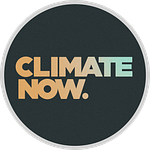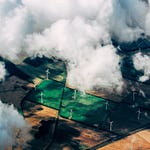Episode Summary
On today’s Climate News Weekly episode, James Lawler, Julio Friedmann, and Dina Cappiello discuss the need to invest in our grids to ensure a reliable energy transition, in the US and abroad, the sobering reality that climate change is speeding up species' extinctions, and how new European climate reporting rules for companies will impact future decision-making.
Transcript
James Lawler: [00:00:00] Welcome to Climate News Weekly. I'm here with Julio Friedmann and Dina Cappiello. Hi guys.
Julio Friedmann: Pleasure as always.
Dina Capiello: Nice to be here.
James Lawler: So a number of stories this week we want to bring to everyone's attention. There are several on the topic of grid upgrades and grid investment, most notably perhaps the decision by the Biden administration to award three and a half billion dollars in grants for projects to protect the aging U.S. power grid from extreme weather and fires and to connect transmission systems with more electricity from renewable sources. Any thoughts on this one, guys?
Julio Friedmann: Well, it's always nice to see the Bipartisan Infrastructure Law delivering, and the Department of Energy has taken that work quite seriously. Last week it was hydrogen hubs, this week it's grid infrastructure, and we, we need so much more of that.
The International Energy Agency put out a report this [00:01:00] week that said worldwide for the energy transition, we need 80 million kilometers of grid upgrade and replacement. So this is a down payment. I'm glad to see it. And overall, grid infrastructure remains sort of unloved. It just, we really need to put way more money and effort into building it, permitting it, et cetera.
James Lawler: Yeah, it's actually pretty cool. I mean, even though it is a down payment, three and a half billion is just a fraction of what is needed, this will bring the projects that are receiving funding. There's 58 of them across 44 states, and the projects will help bring more than 35 gigawatts of new electricity onto the grid from wind, solar and other renewable power.
So it's not a small number of gigawatts, even though we need a lot more.
Dina Capiello: To Julio's point, I mean, like, I feel like this is the area of the transition that gets, like, the least attention because it's not sexy, right? Like, it's like, the wires and the connections that [00:02:00] unite, right? Our energy producers to the energy users, but it is absolutely essential to upgrade.
Otherwise, all of this transition we've been talking about, right? The tipping point we're seeing on renewable energy, solar in particular, is not going to be realized.
Julio Friedmann: Most electricity grids around the world are not built for two way flow, for local generation, for distributed generation. So you need to make this kind of investment to bring more distributed and clean sources online.
And it's long overdue. You can say, you know, glass half empty, glass half full. But we have got some water coming into the system. I'm pleased with that.
James Lawler: Yeah. And you've got a great shirt on today, Julio, that is sort of a examination of the glass half empty, half full concept. Could you explain to just our, our listeners what you're wearing?
Julio Friedmann: Yes. My t-shirt says 50 percent water, 50 percent air, technically the glass is 100 percent full.
James Lawler: Amazing.
Julio Friedmann: And that totemic sense of optimism from this t-shirt carries through the [00:03:00] Biden team's and the DOE's investments. So other grid related stories- across the pond, our friends in the United Kingdom got a wake up call.
The UK government solicits input from many advisory groups. In this case, the National Infrastructure Commission. And the NIC said, “you just need to put a lot more money into infrastructure and grid upgrades specifically”. And that includes both the onshore and the offshore components. It looks like a substantial outlay of money.
If they actually follow through with those plans, the grid investments would increase 30 to 50 percent, but there's nothing for it. If they want to hit their targets, they simply have to make those investments. And in this case, the present UK government has been trying to backtrack a little bit on its own climate commitments.
This was a fairly strong counter by a really neutral, respectable, excellent group that just said, "No, we really need to double down on this part of the energy transition".
James Lawler: I'm curious to know something, Julio, from your view. With the grid [00:04:00] upgrades and that IEA report in particular that says we need 80 million kilometers of new grid infrastructure, my question is: what are the underlying assumptions that drive estimates like that? How do we understand that projection?
Julio Friedmann: Right. This is about the energy transition. This is getting to net zero. Just in the United States, the Princeton study for Net-Zero America suggested that, to get a lot of renewable and efficiency into the grid you needed to have five times more grid than you have today.
That's just the U.S. and that's the most optimistic renewable and efficiency outlay. When you look at the rest of the world, that 80 million kilometers is enough distance to go around the world 2000 times. It's just a lot of stuff.
James Lawler: Right.
Julio Friedmann: Now, that doesn't mean that we might not innovate and reduce the amount that we need. We're pretty good at innovating, and we might find solutions to this. But the idea that we can do this without a lot more infrastructure build out, a lot more copper wires, like, we're not thinking [00:05:00] about this fully, and that's why the IEA wrote this report.
If we want to take those climate goals seriously, we gotta make those kinds of building, investment, infrastructure, and the full supply chains associated with it.
James Lawler: So a report like this is published; who's reading it, like who's using it? How does this make its way from a PDF on a website to actual policy?
What would you think the impact of this report might look like?
Julio Friedmann: So this ends up being a forcing function for government planning, and this ends up being a play for investors. So they're going to look and say, well, gosh, if we need that much, maybe I should be thinking about opening new copper mines. Maybe I should be thinking about creating a portfolio company that does transmission build out.
This enters the world in very real ways. And for me, the main take home is you got to do this or you don't get the energy transition. That's why Biden's bills and the Bipartisan Infrastructure Law is so [00:06:00] exciting because it's the first step in doing this. It's actually walking that walk.
James Lawler: Yeah, indeed. 21 species delisted from the Endangered Species Act due to not that they've come back, but that they are now gone.
You know, one question I had looking at this, we know that new species emerge and species go extinct at some rate with or without. you know, climate change, human intervention, et cetera. Do we know that these are caused by us?
Julio Friedmann: Unquestionably. Yeah. So we have a lot of scholarship on this kind of topic.
Paleontologists, comparative biologists, ecologists have very straightforward metrics by which they measure the rates of extinction through geological time and all the way into the present in the Pleistocene and in the Holocene. There is no doubt that we are now in the Anthropocene and that it is already the sixth largest extinction of all geological history.[00:07:00]
There is not mystery to this and you can find an awful lot of evidence associated with extinctions and actions of human beings. And in the case of global warming and ecosystem destruction and other biodiversity stresses, this is unfortunately not a surprise. We're going to see more of this kind of news where threatened species and endangered species become extinct species.
Dina Capiello: Yeah. I remember being at the AP as a journalist and covered the listing of the polar bear, which actually was the first species to be listed due to climate change. Now, I think it's important that many of these species that were taken off the list because they are in fact extinct were probably listed for other reasons besides climate change: habitat loss, hunting, etc.
But what's happening now is climate change has become the forcing mechanism for getting them off the list, right? And that I think is, is a really sad [00:08:00] reality. We're seeing more species listed due to climate change impacts as endangered and at risk of extinction and more becoming extinct because of the massive scale of change happening globally because of anthropogenic emissions.
James Lawler: Now in somewhat more positive news, we've seen this week that after a push by 44 companies and a number of policymakers in the EU, the EU has pushed through new sustainability reporting requirements.
And now 50,000 companies across Europe will have to report on climate impacts beginning early next year on a number of metrics, which is a huge number of companies. Julio, can you give us some insight into what these reporting requirements are about?
Julio Friedmann: Sure, and this story of course follows on the heels of California's historic law, requiring a disclosure around sustainability measures as well. These companies were pushing back, saying it is too much of a burden, we simply [00:09:00] can't do it, we're hoping for a delay.
The EU is having none of it. They just said, we're going to make this happen. It's a level of transparency and reporting which focuses the mind for a lot of companies. You can't manage something you can't measure. So the EU's position is, “hey, first thing we're going to do is measure. You guys got to report some stuff”.
It is true, this represents a substantial burden to these companies. I'm not blind to that, but I don't see how you not do it. You have to have this kind of reporting or else you can't craft good policy, you can't do good analysis, you can't plan as a company, all the rest of it.
Dina Capiello: Knowing is the first step.
We have a whole division at RMI devoted to this and boosting transparency using big data. I think just like the California regulation that passed, this is going to be a challenge, but there are technologies and a lot of ways to kind of crunch all of this data that's going to be generated by these regulations, not only in Europe, but here in the U.S.
Remember, a lot of this [00:10:00] used to be self-reported, not very sophisticated. We've gotten more sophisticated over time. And so I think accurate data is 100 percent the start of something that we need to address.
James Lawler: I thought there was a sort of helpful quote to frame this from. Eelco van der Enden, who is chief executive of an organization called GRI, or Global Reporting Initiative, and he said that the vote this past Wednesday, quote, “signals the transition from political debate to practical implementation for these new rules, which are a game changer for corporate accountability in the EU and globally”.
So, you know, there's been a lot of discussion about all these things. Now they're reality. This reporting has to happen. And we're now in a new phase and it'll be interesting to see like the ramifications of that and how that plays out over time.
Well thanks Julio and thank you Dina again for the recap this week.
That's it for this week's episode of Climate News Weekly. We [00:11:00] hope you'll join us next week. Climate Now is made possible in part by our science partners like the Livermore Lab Foundation. The Livermore Lab Foundation supports climate research and carbon cleanup initiatives at the Lawrence Livermore National Lab, which is a Department of Energy applied science and research facility.
More information on the Foundation's climate work can be found at livermorelabfoundation.org.











Climate News Weekly: Grid Upgrades, Species Extinction, New European Reporting Rules, and more